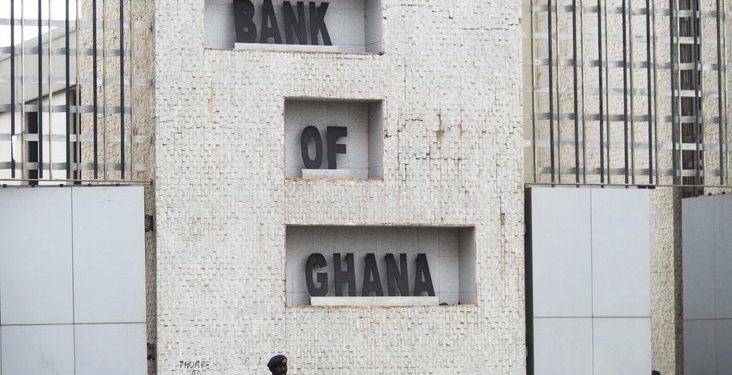BoG Bills: GHS 5.5 bn debt mobilized for Gov’t
The Bank of Ghana (BoG) has successfully raised GHS 5.5 billion in fresh debt through the auction of its own bills, according to recent reports.
The BoG bills have a maturity period of 14 days and were auctioned on Wednesday, February 15, 2023, at an interest rate of 28 percent. This figure is significant, as it indicates a strong demand for government debt securities in the country.
However, while the auction results released by the BoG confirmed the successful raising of GHS 5.5 billion in fresh debt, they did not provide any information on the value of bids made by banks, insurance firms, and pension funds for the bills. Additionally, it did not indicate whether the BoG was able to meet its target with the auction, as both amounts were not stated.
Central Bank bills, including the BoG bills, are mostly used through Open Market Operations (OMO) and serve as a monetary policy tool to regulate money supply. The primary function of Central Bank bills is to manage the liquidity of the banking system by selling short-term securities on the primary market.
In most cases, funds raised from the auction of the BoG bills are directly loaned to the government to support its short-term needs.
The successful auction of the BoG bills reflects a continued demand for government debt securities in Ghana, potentially indicating investor confidence in the country’s economic prospects. However, it will be important for the government to use the funds raised effectively to support sustainable growth and development, while also keeping a close eye on debt levels and borrowing costs.
The BoG, as the regulator of the country’s banking system, has an important role to play in ensuring that financial stability is maintained. The Central Bank bills offer a tool through which the BoG can influence the overall cost of borrowing in the economy, thereby controlling inflation and managing economic growth.
By setting the interest rate on Central Bank bills, the BoG can also signal its intentions with regards to monetary policy, providing a degree of stability to the market.
However, there are potential downsides to this approach. High interest rates on government debt securities, while attracting investment, also increase borrowing costs for the government, potentially limiting the funds available for other important areas of expenditure.
Furthermore, while the successful auction of the BoG bills reflects investor confidence, it is important to note that rising debt levels could be a cause for concern in the longer term.
Overall, the successful auction of the BoG bills provides some cause for optimism about Ghana’s economic prospects. However, it will be important for the government and the BoG to continue to take a cautious approach to borrowing and debt management, ensuring that sustainable growth and development are prioritized.
The successful auction also highlights the important role that Central Bank bills can play in regulating the banking system and influencing monetary policy, providing a useful tool for policymakers in Ghana.








